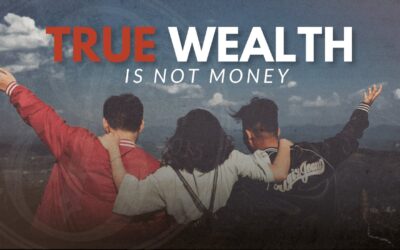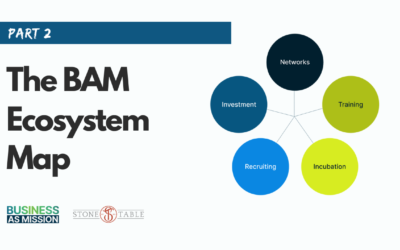I Don’t Think I’m a Racist, But I Know I’m a Sinner

About three weeks into Indiana’s Coronavirus “Stay At Home” order, my 18-year old daughter and I were looking for (another) movie to watch. A few year’s back, I listened to the audiobook of Just Mercy, Bryan Stevenson’s powerful account of fighting to overturn wrongful death row convictions in Alabama over the last 30 years.
Since 1989, the Equal Justice Initiative has saved 135 mostly African-American men from the death penalty, but it all started with Walter McMillan. Last year, the book was made into a feature film starring Michael B. Jordan as attorney Bryan Stevenson, and Jamie Foxx as Walter McMillan, a man who spent 6 years on death row for a crime he did not commit. We decided this would be an entertaining and poignant way to spend a rainy April evening.
Injustice and Despair
[Spoiler Alert] There’s a powerful scene about halfway through the film where Bryan Stevenson has completely exposed Walter’s bogus conviction. In any just system, the evidence is clearly pointing to a new trial and ultimate acquittal. The State’s only witness completely recants his coerced testimony. And yet the judge, looking squarely at an inarguable set of facts that made it impossible for Walter to have committed the crime, cavalierly casts them aside and sends McMillan back to death row.
As the guards walk a handcuffed Walter McMillan back to his 5×8 Alabama death row prison cell, he frantically grabs onto the bars in a desperate attempt to avoid going back in. The guards physically tackle him into his cell and onto the bed as he screams out his innocence. It was a gut-wrenching scene, along with many others that left my daughter and I quietly wiping tears from our eyes. How could such an obvious injustice continue to be perpetrated on an innocent man?
I hesitate to try connecting these dots because they’re not even in the same dimension. But in that moment, I felt like the Lord gave me a tiny taste of what Walter McMillan must have been feeling. Almost every American city was on a stay-at-home order, effectively confined to our houses (albeit with family and Netflix). The facts were ever-changing, confusing, and (it seemed) often ignored. Every time we were given a tiny tinge of hope that the order might be lifted, it was extended a little longer. There was nothing I could do to fix this situation for me or my family. I felt irritable and helpless (just ask my wife), and for me, it wasn’t a racially-motivated matter of life and death.
If I felt this way because of a few months of coronavirus confinement, what must wrongfully accused death row inmates feel like? Especially when these wrongful convictions are racially motivated?
George Floyd
George Floyd was killed by police just a short distance (2.3 miles to be exact) from the campus of North Central University in downtown Minneapolis. My daughter will begin her senior year at NCU in just a few short months and I’m honored to serve on the Board of Regents for the school. I have many friends in the Minneapolis area and I’ve learned to love the city, so it felt extra personal to me as I saw the horror unfolding in real-time from people I know and love.
As a general rule, I try to avoid gut-reaction commentary on current events. On more than one occasion, I’ve regretted being quick to speak. And with the issue of racism, I’m even more hesitant to comment without extensive introspection and prayer. But what we saw unfold in that horrific 8-minute Memorial Day iPhone video turns up the volume of silence to deafening levels.
It seems that conservatives want to ignore racism and pretend it isn’t that bad. It seems liberals just want to talk about racism and pretend that they care. How do we stop leveraging the racism discussion for political power plays? How do we stop lecturing one another and have real, humble, God-honoring conversations around these issues that lead to substantive change?
Honestly, I need to listen to my African American friends and colleagues if I want to begin answering those questions. Except for those tiny moments of epiphany like I had watching Just Mercy with my daughter, it’s hard for me to feel the problem as a white middle-class man until a story like George Floyd’s just won’t let me look away.
Image Bearers
But there are a few Gospel-centered perspectives I want to humbly offer to the conversation. As part of our Stone Table teaching on faith, work, and missions, we start with The Great Story; the overarching meta-narrative of Scripture. There is a divine storyline that God has been writing since the beginning of time, and He has so graciously invited each of us into it through the finished work of Jesus Christ.
It’s here we learn of the concept of Imago Dei, that all human beings are created in the Image of God (Genesis 1:26-27). And while we carry a beautiful, God-made tapestry of different backgrounds and cultures and skin tones, every man and woman is stamped with the very DNA of the Creator. It’s sin that has divided us, leveraging race and culture for power and position instead of the glory of God and the love of our neighbor.
Racism is vile because it violates the Imago Dei that God Himself stamped onto each and every human being. As believers in Jesus, we are called to embody the resurrected Kingdom of God, a Kingdom of every tongue, tribe, and nation. When I look at another human of any color, I am staring at the image of God Himself. That should foster a sacred solidarity with every image-bearer that we meet.
The Law
When I saw the footage of George Floyd under that police officer’s knee, I was horrified just like all of you. But my instincts assumed that the officer would be arrested and punished. That’s what the law says, right? That’s what happens when one human being murders another, right? This is where my personal experience has obviously forged a completely different set of expectations from my black friends and neighbors.
So how do we create change? What kind of change needs to be created? I’ll be the first to admit, when it comes to the details here I need to do more listening than opining. But I believe I can safely speak on a macro level.
In a faith context, Paul referred to The Law as our “guardian” until Christ came. Laws are intended to do what our sinful hearts don’t naturally do on their own, to protect us from ourselves in a sense. In a sinless world, racism would not exist, but while we wait for the final fulfillment of God’s Kingdom, we must protect civil and human rights for all image bearers with good laws – writing them, passing them, and most of all, upholding them.
What new laws need to be created? What old laws need to be done away with? What existing laws need to simply be upheld equally for all image-bearers of God? I don’t know, but I’m willing to listen, learn, and find out.
The Gospel
But what about heart change? Education and awareness are good, but the only thing I know that truly transforms a human heart beyond self-righteous moralizing, that completely resurrects the stench of death inside of me, is the finished work of Jesus. And yet even as Christians, we live in the already but not yet of God’s Kingdom, where the beauty of Jesus has come yet is still be worked into our lives. The Apostle Paul described it best:
“And I know that nothing good lives in me, that is, in my sinful nature. I want to do what is right, but I can’t. I want to do what is good, but I don’t. I don’t want to do what is wrong, but I do it anyway. But if I do what I don’t want to do, I am not really the one doing wrong; it is sin living in me that does it. I have discovered this principle of life—that when I want to do what is right, I inevitably do what is wrong. I love God’s law with all my heart. But there is another power within me that is at war with my mind. This power makes me a slave to the sin that is still within me. Oh, what a miserable person I am! Who will free me from this life that is dominated by sin and death? Thank God! The answer is in Jesus Christ our Lord.” –Romans 7:18-25
I don’t think I’m a racist, but I know I’m a sinner. Inside of me wars the kingdom of this world and the Kingdom of my God. And while the Holy Spirit is resurrecting and renewing more and more of me each day, I am still capable of spiritual blindness in this season of the already but not yet. There’s plenty of “not yet” still working its way out of me, which means I have to be willing to open my heart wide and say “Jesus, show me the hidden darkness of racism in my soul that I’m not even aware of yet.” Because of what Jesus has done, I don’t have to be afraid of that prayer. I can pray it with bold humility. My righteousness was never my own anyway. Repentance is the pathway to restoration.
Every Tribe, Tongue, and Nation
As a huge believer and bold proclaimer that the Gospel must be declared to the ends of the earth, that every nation, tribe, and tongue must hear the redemption message of Christ, that the greatest injustice in the world is that any human being could live and die without ever hearing the name of Jesus, I don’t want to be blind to local prejudice and injustice in my own life and in my own neighborhood.
To all of my African American friends, to those I work alongside at Community Reinvestment Foundation, to those I worship alongside and live up the street from, for wherever and whenever I may have missed the mark, please forgive me. Jesus is still resurrecting me, but thank God He is in the resurrection business. May God heal us at the core. May His Kingdom truly and fully come.
“Search me, O God, and know my heart: try me, and know my thoughts: And see if there be any wicked way in me, and lead me in the way everlasting.” –Psalm 139:23-24



